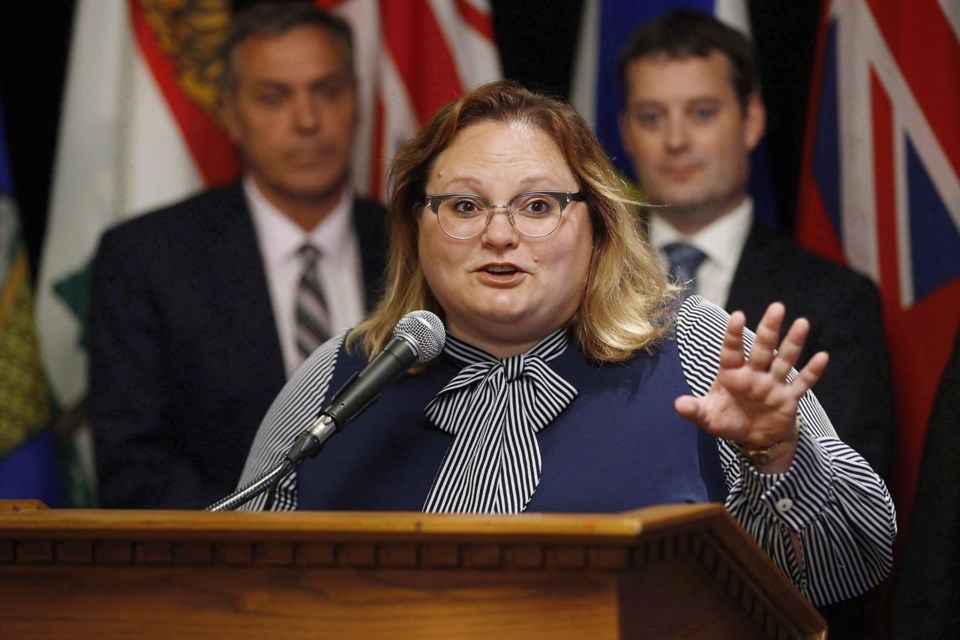EDMONTON ŌĆö The Alberta government says it has ended the emergency directive calling for some patients in Edmonton hospitals to be treated in hallways.
The order had been enacted earlier in the week to reduce pressure on emergency departments while Alberta Health Services worked to place some patients in other hospitals or care facilities.
ŌĆ£The number of patients now placed has allowed us to conclude this surge activation and return to monitoring the demand and capacity requirements throughout the day,ŌĆØ AHS spokesman James Wood said Thursday in a statement.
He noted while the directive is over, some units might still be going over-capacity ŌĆ£as part of normal surge capacity protocols.ŌĆØ
Wood said the surge came as it was dealing with high demand following a long weekend coupled with staffing shortages and higher numbers of patients due to COVID-19.
ŌĆ£AHS is continually monitoring and planning capacity in order to quickly respond to changes in demand,ŌĆØ said Wood.
ŌĆ£The global pandemic has had an unprecedented impact on health-care systems around the world.ŌĆØ
Opposition NDP critic Sarah Hoffman acknowledged itŌĆÖs a global issue, but said AlbertaŌĆÖs UCP government accelerated the chaos by chasing professionals away after tearing up the master contract with doctors and fighting at one point to cut nursesŌĆÖ salaries.
Hoffman said the government needs to rebuild those relationships as the first step to fixing the overcrowding issue.┬Ā
ŌĆ£Under the current government, weŌĆÖve seen a significant crisis and it just canŌĆÖt continue,ŌĆØ Hoffman told reporters.
Hoffman likened it to a pernicious domino effect, with fewer doctors and nurses leading to reduced hours at family practices and urgent care clinics, forcing patients to go to emergency rooms, which then become crowded, forcing ambulances to wait to off-load patients, tying up paramedics and leading to ambulance shortages and critical gaps in care.
Hoffman, a former health minister, added that August is typically the month when patient levels are among the lowest before escalating in the fall and winter seasons, when respiratory illnesses are more prevalent.
ŌĆ£WeŌĆÖre already beyond the brink right now in early August, which is supposed to be one of the more quiet times in terms of hospital emergency care,ŌĆØ she said.
ŌĆ£What this could mean for the fall is incredibly scary.ŌĆØ
Hoffman urged Albertans to elect an NDP government in the 2023 election as a way to fix the mess.
That brought a response from Steve Buick, spokesman for Health Minister Jason Copping.
ŌĆ£The strains (on the health system) are similar in every province (and other countries) regardless of political stripe,ŌĆØ said Buick in an email.
ŌĆ£One big difference in Alberta is an Opposition that embarrasses itself by calling daily press conferences to say over and over again that voting for them would magically do away with any given impact of the pandemic.
ŌĆ£AHS is staffing up as fast as they can, given the pressures on the workforce across sa╣·╝╩┤½├Į,ŌĆØ he added.
ŌĆ£Other provinces are seeing similar impacts or more severe ones, including NDP (governed) BC.ŌĆØ
ItŌĆÖs estimated about a million people in sa╣·╝╩┤½├Į don't have a family doctor.
In Ontario recently, emergency departments have, due to staffing shortages, closed temporarily for hours or even days at a time.
In Quebec, some workers have been asked to report to work in recent days while dealing with serious COVID-19 symptoms in order to avoid critical gaps in care.
This report by The Canadian Press was first published Aug. 4, 2022.
Dean Bennett, The Canadian Press


